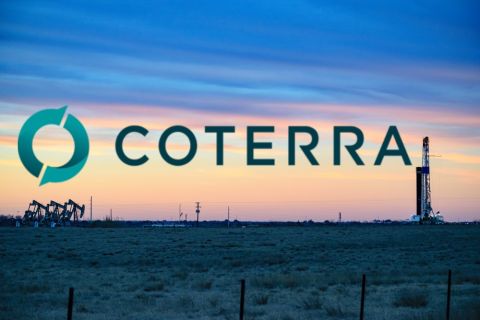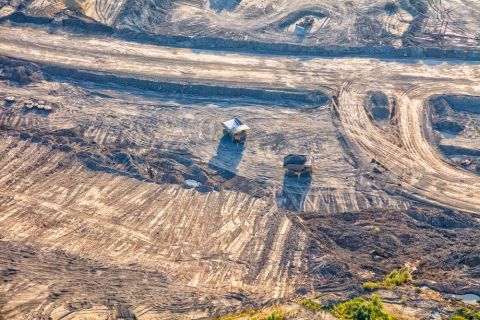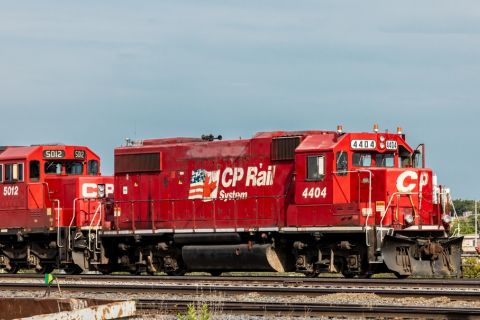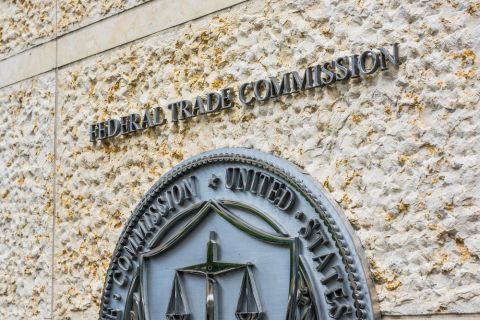Learn more about Hart Energy Conferences
Get our latest conference schedules, updates and insights straight to your inbox.
CNOOC Ltd.'s (NYSE: CEO) withdrawal of its bid for Unocal Corp. (NYSE: UCL) was accompanied by strong words on the political pressure it encountered in the U.S. against its offer, and included the China-based company's claim of pity for Unocal shareholders.
If CNOOC really would have countered the second Chevron bid with another offer, Unocal shareholders were shorted. Would it have countered? CNOOC suggests it would have, if not for artificial obstacles.
CNOOC wrote in its press release, "...We are reluctantly abandoning our higher offer to the clear disadvantage of Unocal shareholders and employees."
There can be no crying, though: There wasn't another offer, Unocal shareholders fared better than if CNOOC had not bid at all, and clearly no one else was interested in Unocal's assets, since Chevron was the only other contender left in the public part of the contest. Italy's ENI (NYSE: E) was a contender before Unocal accepted Chevron's formal offer.
This isn't to say Unocal's assets aren't a grand prize: 1.75 billion barrels of oil equivalent in proved reserves. The assets are just more grand to Chevron and CNOOC in particular. Chevron strengthens its North American portfolio and in the Asia-Pacific and Caspian regions. CNOOC would have gained new strength in North America and the Caspian, and furthered its asset-amassment in the Asia-Pacific.
Noteworthy is that, as a concession to upset law-makers, CNOOC offered to sell Unocal's U.S. assets. This is where U.S. independents missed a great opportunity-to buy Unocal's U.S. holdings, which may have fetched some $4 billion or more once smartly packaged and marketed by basin and play.
At least one U.S.-based asset-buyer isn't disappointed, though. "I would ask...how many American major or independent oil companies have significant acreage or production onshore China? I would also like to know how long American companies have been trying to make that happen."
"I believe the answer will be that American companies don't have significant acreage/production onshore China and that many have been trying to make that happen for the last 10 to 15 years or more. This...should be reciprocal."
Of course, "I am always disappointed when good assets don't come to market. But with Chevron, you never know."
Chevron reports that it will sell some $2 billion worth of assets. It has not announced locations yet. Not likely to be included are deepwater Gulf of Mexico treasures. That's another area in which Chevron does particularly well by roping Unocal-the two companies had common interests in many prolific deepwater Gulf discoveries.
John Herrlin, the veteran E&P analyst with Merrill Lynch, is fine with the deal. "We didn't believe that Chevron would have to get aggressive to counter the CNOOC offer...." The part-stock Chevron offer was more tax-efficient to Unocal shareholders, he says. "And from a time-value-of-money basis and given potential 'closing risks,' we viewed the Chevron offer as being superior."
Chevron put up roughly $17.5 billion (some stock, some cash); CNOOC countered with $18.5 billion (all cash); and Chevron raised to roughly $19.5 billion (cash and stock).
The American E&P industry may have been horrified that a Chinese company could muster enough financial courage to take on an $18.5-billion, all-cash bid for one of America's own.
One U.S.-based explorationist says, "I like the whole 'manifest destiny' thing as long as we are the ones making the manifest!"
Good at keeping everyone-management, shareholders, policy-makers, law-makers-on top of their game is T. Boone Pickens, who continues to stir up oil-industry boardrooms with reminders of shareholder rights.
In the September issue of Oil and Gas Investor, Pickens says, "I'm amazed when shareholders think they are smart enough to buy a stock but not to take the best offer on it later...."
About the CNOOC offer in particular, he says, "To me it was very simple-if Chevron wanted it, they would have to bid more than the Chinese...Chevron did what most companies do-which is, when they get in trouble, they run to Washington.
"We don't have any problem with the Chinese buying our federal bonds. Nobody says anything about that. Unocal is so small in the world oil picture, it's a brouhaha over nothing."
What has been learned here by the U.S. upstream-asset seller? The next time a U.S. company wants to buy another U.S. company on the cheap, the seller need only invite a competitive bid from a Chinese company.
More opportunities for competitive bidding for U.S.-based companies are on the horizon. At the time of the original Chevron offer for Unocal, Bear Stearns analyst Fred Leuffer said other big acquisition targets are Murphy Oil (NYSE: MUR), Marathon Oil (NYSE: MRO), Anadarko Petroleum (NYSE: APC) and EOG Resources (NYSE: EOG).
Shoppers are CNOOC, ENI, PetroChina (NYSE: PTR), Royal Dutch Shell (NYSE: RDS-A), ConocoPhillips (NYSE: COP) and Total SA (NYSE: TOT).
Only one of these is a U.S. company.
While operating onshore China is not easily achieved, bugs remain in China's contracts for operating offshore too. Apache Corp. (NYSE: APA) reported in its second-quarter earnings release that operatorship of its Bohai Bay, offshore China, assets could be taken by its Chinese partner, CNOOC, when Apache has recovered its investment. Production from Bohai Bay net to Apache was 10, 600 barrels per day in the first half.
Apache wants to have a position in China but wants to operates its assets. "The Apache board of directors is of two minds with respect to our future in China," the company reports.
"Some directors hold the view that China is too important for Apache not to be represented. The alternative view is that we contribute greater value when we operate assets than we do in nonoperated fields. A decision to remain in China would call for us to expand Apache's areas of exploration and production potential. We expect to resolve the issue within the next two years."
CVX-UCL Upstream Net Asset Values* | ||||
CVX Value ($MM) | UCL Value ($MM) | Total ($MM) | Comments | |
Angola Concessions | 3,965 | 3,965 | Africa is CVX only-no UCL | |
Angola PSC | 1,640 | 1,640 | ||
Argentina | 1,323 | 1,323 | Same applies to L. America | |
Australia | 4,838 | 4,838 | NW Shelf goes well with Bontang | |
Azerbaijan | 2,562 | 2,562 | Great addition to Kazakhstan | |
Bangladesh | 854 | 854 | Expansion to Bangladesh | |
Brazil | 351 | 351 | ||
Canada** | 539 | 1,800 | 2,339 | |
Canada East Coast | 1,171 | 704 | 1,875 | Canada may well be sold |
Canada Heavy Oil | 1,589 | 1,589 | ||
Chad | 2,157 | 2,157 | ||
China | 1,271 | 253 | 1,524 | China overlap |
Colombia | 478 | 478 | ||
Congo/Braz PSC | 975 | 21 | 995 | |
Denmark | 1,159 | 1,159 | ||
Indonesia | 2,669 | 2,411 | 5,080 | Becomes biggest player in Indonesia |
Kazakhstan JV | 12,030 | 12,030 | ||
Kazakhstan PSC | 1,917 | 1,917 | ||
Myanmar | 725 | 725 | Very awkward | |
Netherlands | 41 | 41 | ||
Nigeria Concessions | 2,790 | 2,790 | ||
Nigeria PSC | 3,860 | 3,860 | ||
Norway | 81 | 81 | ||
Philippines | 1,450 | 1,450 | ||
Saudi Arabia Partnd | 1,259 | 1,259 | ||
Thailand | 926 | 3,068 | 3,994 | The jewel in the UCL crown |
Trinidad PSC | 618 | 618 | ||
U.K. | 3,635 | 3,635 | ||
U.S. Alaska | 647 | 613 | 1,260 | Good overlap...for sale? |
U.S. Gulf of Mexico | 4,069 | 995 | 5,064 | Good overlap...core |
U.S. Onshore | 21,249 | 2,274 | 23,523 | |
Venezuela Marg. Field | 1,582 | 1,582 | ||
Venezuela Strat. Assoc. | 3,427 | 3,427 | ||
Sub-Total | 83,669 | 16,320 | 99,989 | |
Implied Value/MBOE Booked Reserves ($MM) | 7.0 | 8.3 | ||
* Does not include downstream assets in these regions. | ||||
** Deutsche Bank original data adjusted for Pogo Producing's US$1.8B bid for Unocal's | ||||
Canadian Northrock Resources business. Source: Deutsche Bank, Wood Mackenzie, company data |
Recommended Reading
CEO: Coterra ‘Deeply Curious’ on M&A Amid E&P Consolidation Wave
2024-02-26 - Coterra Energy has yet to get in on the large-scale M&A wave sweeping across the Lower 48—but CEO Tom Jorden said Coterra is keeping an eye on acquisition opportunities.
Some Payne, But Mostly Gain for H&P in Q4 2023
2024-01-31 - Helmerich & Payne’s revenue grew internationally and in North America but declined in the Gulf of Mexico compared to the previous quarter.
Canadian Natural Resources Boosting Production in Oil Sands
2024-03-04 - Canadian Natural Resources will increase its quarterly dividend following record production volumes in the quarter.
After Megamerger, Canadian Pacific Kansas City Rail Ends 2023 on High
2024-02-02 - After the historic merger of two railways in April, revenues reached CA$3.8B for fourth-quarter 2023.
Sunoco’s $7B Acquisition of NuStar Evades Further FTC Scrutiny
2024-04-09 - The waiting period under the Hart-Scott-Rodino Antitrust Improvements Act for Sunoco’s pending acquisition of NuStar Energy has expired, bringing the deal one step closer to completion.





